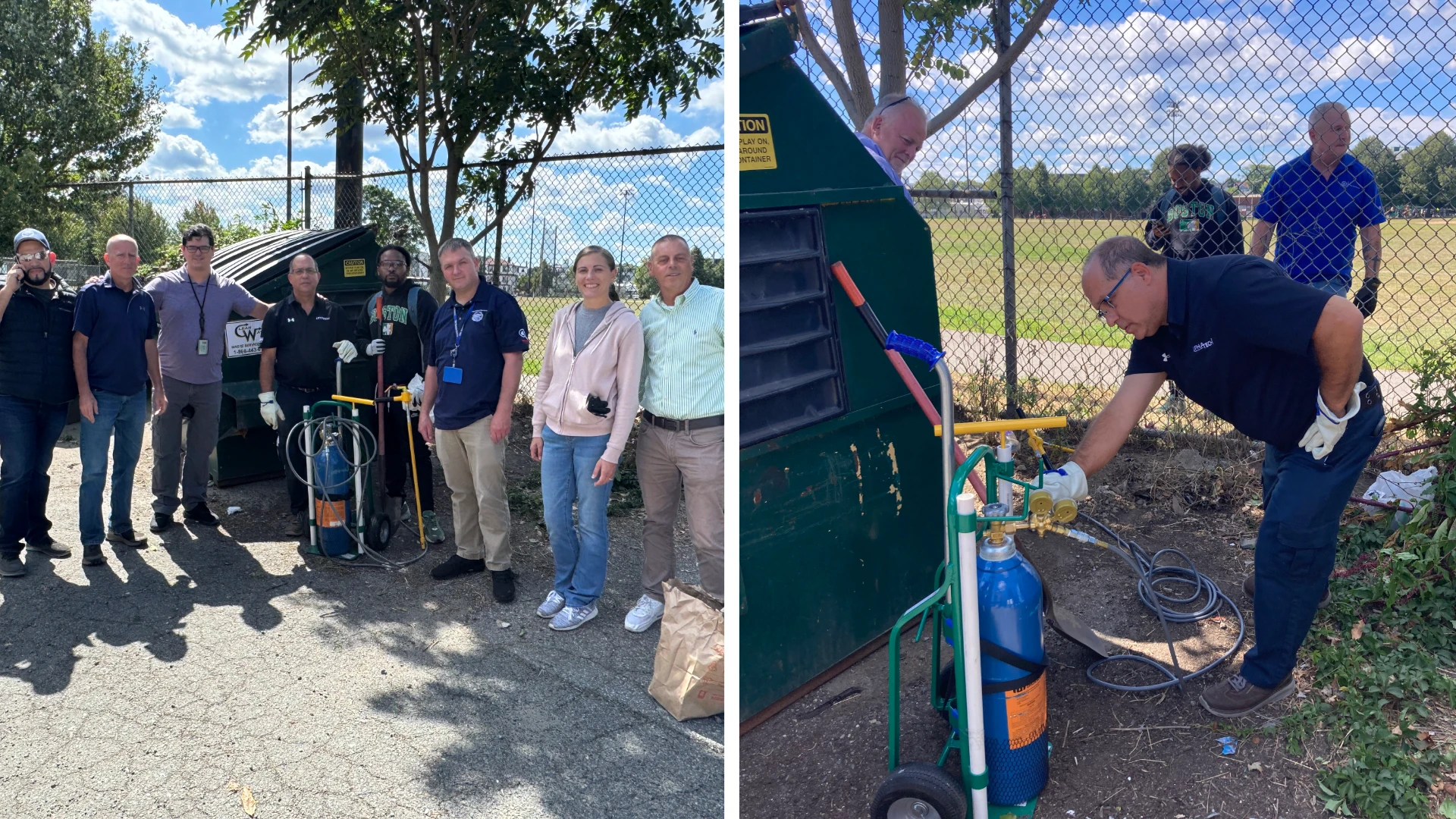September’s North American Bed Bug Summit drew unprecedented attention for the pest control industry as local and national media outlets converged on Chicago for the two-day event organized by BedBug Central.
With the national (and international) bed bug problem continuing to escalate, September’s North American Bed Bug Summit generated unprecedented attention for the pest control industry as local and national print, television and radio outlets converged on Chicago for the two-day event organized by BedBug Central.
Recent attention-grabbing bed bug stories (e.g., "Bed Bugs Close Down Niketown;" and "Bed Bugs Found in NYC Movie Theater") piqued the media’s interest in the summit, which was highly anticipated for bringing together pest management professionals and other industry stakeholders to hear from some of the industry's leading entomologists and bed bug experts.
More than 360 people were in attendance and while about 60 percent were from the pest control industry the remaining 40 percent included a variety of stakeholders (e.g., public housing officials, hotel/motel management, industry suppliers, etc.).
BedBug Central’s Rick Cooper, technical director of Cooper Pest Solutions, set the tone for the meeting in the opening session by noting, "Today maybe the question should not be, ‘Where are we finding bed bugs — but where aren’t we finding bed bugs?’ We are seeing them in all facets of society."
Bed bugs are no longer relegated to the hotel industry and isolated incidents in peoples’ homes. For example, Cooper said in New Jersey alone Cooper Pest Solutions is treating two to three office buildings per week.
In reviewing the recent history of bed bugs, Cooper noted bed bugs began re-emerging in the late 1990s. Cooper says the problem spread throughout society due to a lack of public awareness. For the remainder of his presentation Cooper gave attendees a bed bug primer by reviewing bed bug biology, behavior and management techniques.
Dr. Coby Schal, professor of urban entomology, North Carolina State University, shared some of NCSU’s research on the bed bug resurgence. One of the reasons bed bugs are not expected to be eradicated (as they were post-WWII) is because of strains of pyrethroid-resistant bed bugs. Schal noted that there is anecdotal evidence that "immigrant populations of bed bugs" (those that have been transported to the U.S. from other countries) are more pyrethroid-resistant because heavy pyrethroid use is more prevalent in non-Western countries.
Dr. Michael Potter (University of Kentucky) and Dr. Dini Miller (Virginia Tech University) reviewed various options for chemical treatments. Potter noted that when bed bugs began re-emerging he contacted pest control professionals in their 80s, such as Harry Katz, John Osmun and Val Smitter. He said the consensus was that products such as malathion, diazinon, lindane and others oftentimes only required one application. Today, bed bug management requires several trips and the use of a wide variety of products. And Potter says it’s not that technicians are not skilled at performing treatments — he says he rides with a lot of technicians and has observed very thorough bed bug treatments.
Miller spelled out how pyrethroid-resistant bed bug populations spread. Bed bugs that are resistant to pyrethroids have a genetic mutation such as a thick exoskeleton or enhanced levels of enzyme activity. So, if a population of 100 bed bugs were sprayed with a product and there are four bed bugs that survive because they have a thick exoskeleton, those four bed bugs will mate and soon after an entire population will be bed bug-resistant.
Dr. Stephen Kells (University of Minnesota) and Dr. Phil Koehler (University of Florida) led a session on heat treatments, the Achilles heel of bed bugs, while Dr. Rudy Scheffrahn (University of Florida) gave a presentation on fumigation. Attendees had opportunities to learn about new products at the expo hall, which was filled with products and services from more than 50 firms.
The following supplement highlights several of these presentations. PCT will publish additional coverage of other presentations from the North American Bed Bug Summit throughout 2011.
The author is managing editor of PCT.

Explore the December 2010 Issue
Check out more from this issue and find your next story to read.
Latest from Pest Control Technology
- Rentokil Terminix Expanded in Key Markets with 2024 Acquisitions
- In Memoriam: Joe Cavender
- Certus Acquires Green Wave Pest Solutions
- Liphatech Adds Alex Blahnik to Technical Team
- Do the Right Sting: Stinging Insect Identification, Management, and Safety
- VAGA's 8th Annual Veterans Thanksgiving Appreciation Dinner
- Clark's Blair Smith on the Response to Increased Dengue Fever Cases in Southern California
- WSDA, USDA Announce Eradication of Northern Giant Hornet from U.S.





